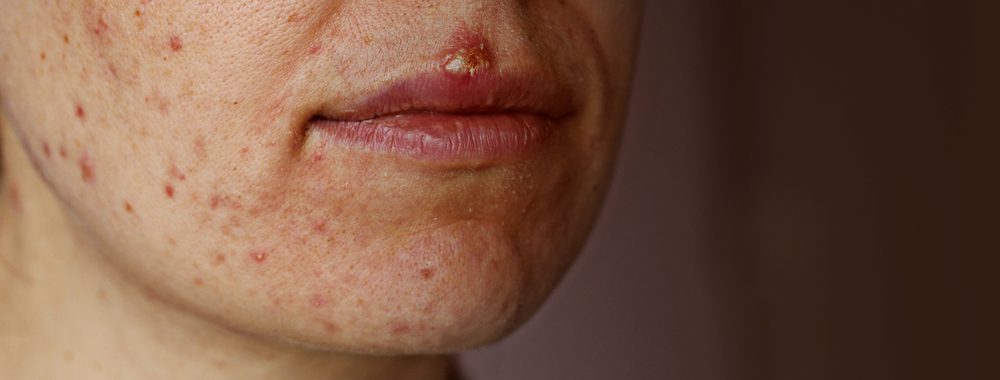What is Paint Allergy?
Paint allergy is very common across the world. Allergies are common situations that affect almost everyone at some point in their lives. An allergic reaction is the result of the overreaction of the human body’s immune system. This overreaction can be against any unknown particle or substance.
Paint smell allergy results from the inhalation of strong vapors present in the paint. It can also be occurred by skin contact. When a person who is allergic to paint breathes in the presence of paint, allergy occurred.
Overview
Your safest shelter, your own home, has been painted. It is present everywhere around you, throughout your life. At your college, schools, malls, workplace, multiplexes, and basically at every wall. When you come in direct contact with allergens present in paint, allergy occurs.
All paints produce vapors with a chemical scent in the atmosphere. In most oil-based household paints volatile organic compounds (VOCs) are found. These household paints are also well-known allergens. Even water-based paints can cause allergic reactions in some people.
Other than inhalation, physical contact is a more frequent way of getting an allergy.
Methyl methacrylate (MMA) is an organic compound. It is present in hairsprays, nail polish, textiles, and even paint. Physical contact with this organic compound can cause allergic reactions to the skin. But it does not cause any kind of allergic reactions in the respiratory system.


Paint Allergy Symptoms
People with latex allergies are at no risk of an allergic reaction due to exposure to latex paint. Because there is no natural latex protein found in latex paint. Latex allergy is a response or reaction to natural rubber latex. This reaction range from mild to severe or even life-threatening.
Allergic reactions to paint fumes can lead to cough, sore throat, runny nose, nasal congestion, and watery eyes. Paints can cause irritation if they get in contact with your skin. They can also be certainly harmful when swallowed, particularly oil-based paints.
Moreover, the fumes from these types of paints can cause cough and irritate your nose, throat, or eyes. When you go out into fresh air irritation goes away. Symptoms of paint allergy are:
- Sore Throat
- Cough
- Running nose
- Nasal congestion
- Headache
- Allergic Conjunctivitis
- Runny nose, irritated, red, and watery eyes
- Nausea and Contact Dermatitis
Direct contact with paints can cause skin irritation, rash, itchiness, and discolored skin. Symptoms of swelling, burning, and sometimes blistering also appear due to paint allergy.
What are Triggers?
Sometimes exposure to VOCs can cause short or long-term health effects. Coming in physical or direct contact with the paint or allergen present in a paint can cause a skin allergy. Physical contact is a more common cause of an allergy than inhalation.
Some levels of Volatile Organic Compounds (VOCs) have been present in most paints. VOCs are released into the air that contains organic chemicals, such as paints.
Some examples of VOCs are:
- Formaldehyde
- Benzene
- Toluene
- Acetone
- Xylene
How to treat Paint Allergy?
If you are going to be repainting your entire house. Here are some best ways that you can follow in order to reduce your risk or to treat your allergic reaction to paint.


Paint Allergy Treatment
In case of an immediate allergic reaction, immediately leave the place and go into the fresh air. Rinse your irritated skin or eyes with fresh water. If swelling occurs on the skin, apply cool compression to the affected area. If you feel itchy or sore throat, gargle with warm salt water to soothe it.
Contact your allergy specialist or allergist immediately if the symptoms are still present. Inform him all about your condition or symptoms for your wall paint allergy treatment.
He will prescribe you some allergy tablets or ointments. In a severe allergic reaction, he may give you allergy shots. You can know about your allergy shots here. Moreover, there are some home remedies that are quite effective in treating paint allergy symptoms.
Home Remedies for Paint Allergy or Management
Make sure you go for allergy-friendly products with little or no Volatile Organic Compounds (VOCs). Select indoor paints and read product labels carefully. Always select a product that will generate less harmful fumes. Such as water-based paints.
Take frequent breaks and go outside in fresh air to allow yourself to get some fresh air.
Always wear a dust or safety mask and protective clothing before entering the office and even your own house. It will prevent people who have an allergy to paint fume from inhaling allergic paint fumes. Wear safety clothes and gloves to avoid an allergy to paint, via physical contact.
Stay away from the walls, roofs, and paint as much as you can. Make sure your room is dry and well-ventilated. Reduce your exposure to paint.
When you finish the painting, keep the windows open. Keep them open as possible for two to three days to allow paint fumes to exit the room. You should avoid entering a newly painted room during this time. Tight close any leftover paint containers. This will prevent vapors from leaking into the surrounding area.
If the paint allergy affects the skin, wash the affected area with warm water and soap. If it affects your eyes, Rinse your eyes for 10 to 15 minutes with running water. Afterward, close your eyes for a maximum of 15 minutes. If you feel any pain or problem seek medical advice or attention.
Conclusion
Paint is present everywhere around you throughout life, even your home has been painted. Allergies to paint are very common across the world, typically it is caused by direct contact or breathing in the presence of paint.
If you are sensitive, you need to limit your exposure to paint to avoid allergies. If you notice any of the symptoms mentioned above, it is always the best idea to contact an allergist. Do you have any additional questions related to this topic? Feel free to contact us without any hesitation we are always here for your help.
FAQ’s
How long does Paint Allergy Last?
The time period of paint allergy depends on your symptoms, if you have mild symptoms you will recover soon. Besides, after painting, make sure to keep windows and doors open for 2 to 3 days. This is an effective way to remove the paint fumes from the room.
How to treat Paint Allergy?
If you are allergic to paint, you need to use some preventive measures. However, there are some home remedies that will be helpful in treating allergy to paint symptoms. But, if your symptoms are severe enough, immediately contact your doctor to get treatment.







